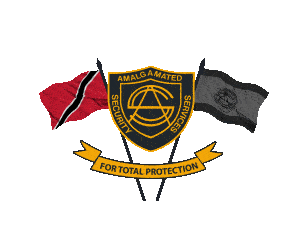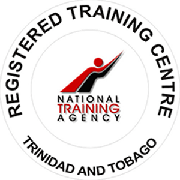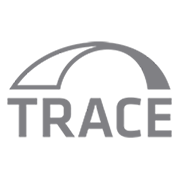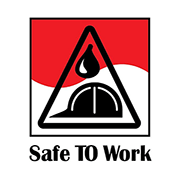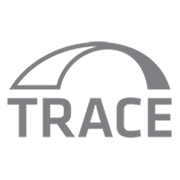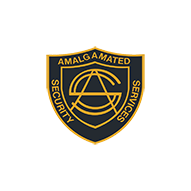Forensics: Polygraph & Integrity Testing in the Business Environment
By Dr. Maurice Aboud, Chief Forensic & Criminalistics Officer at Amalgamated Security Services.
Introduction
Forensic Science covers a broad array of disciplines not only applicable to law enforcement but also to the private sector. In this issue we switch gears to a forensic tool known as Polygraph Testing or “Lie Detection” and we talk about its usefulness in a business environment to enhance employee selection, trustworthiness and retaining employees in positions of high responsibility. Finding employees that one can trust to exhibit key moral and ethical characteristics in one’s business can be a challenging task. They are often the ones who handle financial controls and the management of key physical/data assets. To help address some of these issues companies should consider polygraph testing for both pre- and post-employment, as a screening tool to aid in the selection of personnel and the fulfillment of management in key positions.
While many businesses spend a great deal of resources on protecting themselves from external attacks or criminal activities, crime within the work place from internal sources has also significantly increased. Many companies now are faced with internal theft, fraud, sexual harassment and even industrial sabotage. The use of pre-employment integrity polygraph screening can significantly safeguard against such activities by guiding employers in the interview stage before they hire new people or, post-employment testing for people who may have been suspected of not telling the truth after an incident has taken place. The use of polygraph testing can help increase profitability of your business by eliminating or reducing key aspects such as but not limited to:
- Employee Inefficiency
- Property Theft
- Money Theft
- High Employee Turnover & Training
- Leaking of Confidential Information
- Wasting of Company Stationary & Supplies
- Vandalism
What is a Polygraph: The Science
A polygraph is an examination that uses a diagnostic instrument capable of measuring a subject’s physiological reactions such as: respiratory, electro-dermal and cardio reactions while responding to questions that tell whether a subject is stating the truth or is being deceptive. This is done by first establishing a baseline series of questions to ascertain when someone is being truthful, followed by a series of questions designed to gather the facts of an incident/ personal character. The results indicate when someone is telling the truth or being deceptive about their answer. The line of questioning and manner in which the questions are asked, are in itself a science, therefore the polygraph examiner must be adequately trained not only in use of the equipment but also in interrogation techniques. The changes in physiological conditions are interpreted by the polygraph examiner and compared to reactions to the baseline questions, certain changes indicating deception.
The leading governing body of polygraph examiners is the American Polygraph Association (APA). This organization has established strict standards and requires continued education to maintain the membership as a qualified examiner. Over 1 million private polygraph tests are administered in the US with pre-employment testing making up a large percentage. This number has been steadily growing as more organizations acknowledge the true value of this technique in identifying the correct person for the job or for investigations of an incident with an existing employee. Misconceptions about polygraph techniques have long been raised and numerous studies have been conducted that confirm the techniques’ accuracy with specific questioning. A number of additional counter-measures are typically conjointly used which measure not only physiological, but physical movements that greatly increase the accuracy of the results and decrease the ability of the polygraphee to deceive the system.
The Law and Policies
Currently there are no laws in Trinidad and Tobago prohibiting the use of polygraph testing for pre and post-employment testing. However, an organization must develop and implement policies and procedures for instances where testing can be done and the consequences of the results. Depending on the policies set by the establishment, employee consent through an employee authorization form may be required. It is important that the policies are set beforehand and listed, as part of the requirements for employment. In cases where employment already exists careful considerations must be taken before implementation. Policy templates may be obtained from the examiner, which can be formulated to the specific business and reviewed to ensure that the employer’s process is properly documented and the employer covers itself against any possible litigation by an employee or union.
Benefits of using Polygraph Integrity testing in the business place
Polygraph testing is a relatively short process with a typical analysis being performed in less than 2 hours. The short amount of time allows for multiple testing to take place with little productivity loss and immediate results. Another benefit to polygraph testing is the mobility of the equipment and its capability of being performed onsite at the business location, provided a room with suitable conditions is available. Alternatively a provider of polygraph services should offer testing at their facility.
The results of a polygraph test can be used immediately to help resolve an incident that has taken place, in which an employee is believed to be involved or wishes to exempt him/herself from being involved. The benefits of using polygraph integrity testing both pre- and post-employment can be immediate, stopping financial and resource losses from continuing or allowing the selection of the person with the right character for the position and removing any temptation of committing a crime.
Conclusion
The use of polygraph integrity testing for pre-employment screening and post-employment investigations within the workplace can be a significant tool in obtaining the right people for the job, keeping current employees functioning efficiently and honestly, and stopping the wasting and stealing of company resources. Once the business has put the policies and documentation in place, it can be implemented immediately, bringing a level of comfort to the organization and ultimately reducing cost and increasing profit.
About the Author
Dr. Maurice Aboud is the Chief Forensic & Criminalistics Officer in the Forensics & Criminalistics Unit (FCU) at Amalgamated Security Services. He holds a PhD. in Chemistry with an emphasis in Forensic Science, an MSc. in Forensic Science and has several publications on his work with different forensic applications. Contact: forensics@assl.com
Article published in the Contact Magazine (http://www.chamber.org.tt/wp-content/uploads/Contact/ContactVol13No22013_Q2/index.html )
